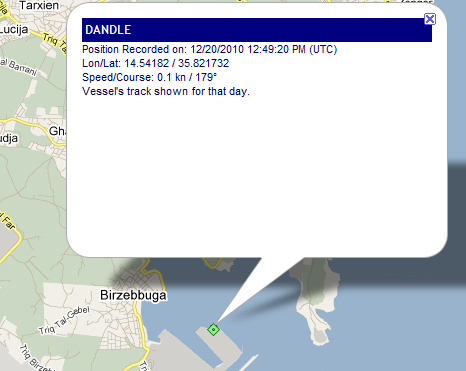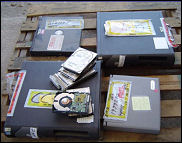 At last, on Christmas Eve, a federal holiday, the New York Times finally releases its analysis of documents it received from the Office of Foreign Assets Control (“OFAC”) as a result of its Freedom of Information Act request relating to licenses granted for exports to sanctioned countries such as Iran. The result? The reporters throw themselves on the fainting couch because a company has exported cupcake sprinkles to Iran, presumably on the notion that this will enrich the Iranian government and aid its nuclear program. I suspect that this conclusion may have prompted the Times editors to publish the story on a federal holiday when five people besides myself will be reading the newspaper. It keeps the laughter down.
At last, on Christmas Eve, a federal holiday, the New York Times finally releases its analysis of documents it received from the Office of Foreign Assets Control (“OFAC”) as a result of its Freedom of Information Act request relating to licenses granted for exports to sanctioned countries such as Iran. The result? The reporters throw themselves on the fainting couch because a company has exported cupcake sprinkles to Iran, presumably on the notion that this will enrich the Iranian government and aid its nuclear program. I suspect that this conclusion may have prompted the Times editors to publish the story on a federal holiday when five people besides myself will be reading the newspaper. It keeps the laughter down.
The principal problem with Jo Becker’s story is her complete misunderstanding of the Trade Sanctions Reform and Export Enhancement Act of 2000 (“TSRA”), legislation which permits a wide variety of exports to sanctioned countries. She seems to believe that the act restricts such exports to humanitarian aid and then uses that misconception to criticize OFAC for licensing the aforementioned cake sprinkles as well as — and this is not a joke — popcorn, hot sauce, chewing gum, cigarettes, food coloring and sugar.
The problem is that TSRA isn’t restricted to humanitarian aid. It permits the exports of agricultural commodities, medicine and medical devices without reference to whether the New York Times or Ms. Becker thinks the product is humanitarian aid. All of the aforementioned products seem to fit clearly within the definition of agricultural commodities. Even if food coloring might not, does Red Dye No. 2 have some role in uranium enrichment which nuclear scientists have so far missed?
I’ll be writing more about the article over the coming days. I still have Christmas shopping to finish. But two other things deserve immediate comment.
First, the article is oddly silent about the large volume of licensed exports to Cuba under TSRA. This, at a very minimum, suggests an odd ideological bent by Ms. Becker. The article argues that food sales to Iran indirectly benefit the government of Iran, an argument that has traditionally also been made to support the Cuba blockade. The new foreign policy adopted by the Times would appear to be “Castro good, mullahs bad.”
Second, a note at the end of the article states, without any apparent realization of the hypocrisy involved, that “Ron Nixon contributed reporting from Washington, and William Yong from Tehran.” Unless Mr. Yong works for free, lives under a bridge in Tehran, and subsists solely on air, the New York Times is doing business in Iran at the same time it is whipping up a tsunami of outrage about other companies doing business there.
There is, however, one good side to the Times reporting. As part of the article, the Times includes a detailed summary of a number of the licenses granted and the reason they were granted. This information, which has heretofore been zealously guarded by OFAC, which prefers to operate under cover of darkness, will be of immense use to export compliance officers and lawyers because they reveal a number of broader rationales that the agency has used to grant non-TSRA licenses.
FULL DISCLOSURE: Both my law firm and I have represented companies named in the story and have obtained licenses permitting those companies to export items to Iran under TSRA.

 Posted by
Posted by  Category:
Category: 




 Marc Knapp, a 36 year old California man, was arrested on charges that, among other things, he attempted to export a military surplus F-5 fighter jet and other export-controlled defense articles. to Iran. The recently unsealed
Marc Knapp, a 36 year old California man, was arrested on charges that, among other things, he attempted to export a military surplus F-5 fighter jet and other export-controlled defense articles. to Iran. The recently unsealed 

